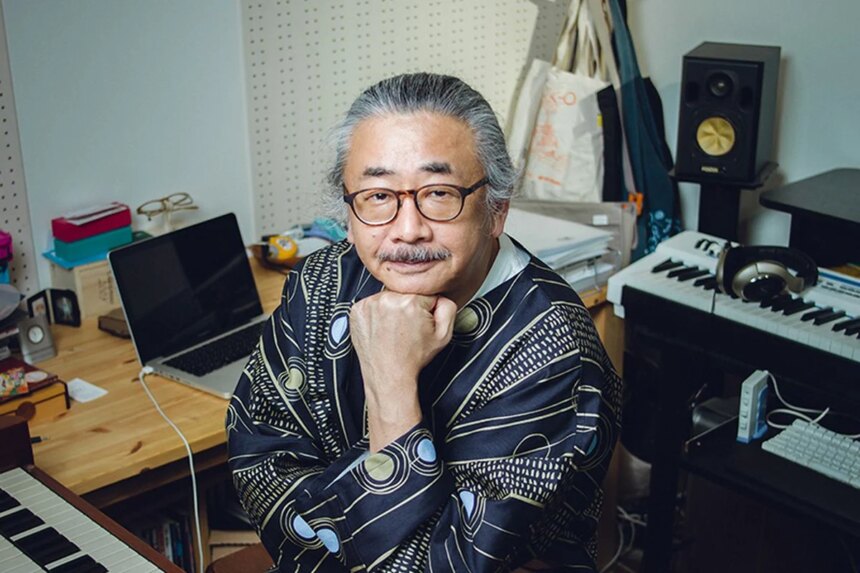The Music Maestro Talks, AI Walks
In a world where computers can churn out tunes faster than a caffeinated squirrel, one legendary composer is firmly waving his baton and saying, “Not today, technology!” Yes, the genius behind the beloved Final Fantasy soundtracks, Nobuo Uematsu, has made it clear that generative AI just isn’t his jam.
No AI for This Prodigy
In a delightful chat with JASRAC (a fancy association for melodic masterminds), Uematsu confessed to never having dabbled in the mysterious realm of generative AI. If anyone was hoping to hear a robotic rendition of chocobo themes, sorry, not happening! He boldly stated, “I’ve never used it, and I probably never will.”
And who can blame him? Uematsu believes there’s something extraordinarily gratifying about crafting music the old-fashioned way—through hard work, sweat, and probably a few cups of coffee strong enough to wake the dead.
The Human Touch
Now, let’s be honest: part of the allure of music lies in the stories behind the melodies. Uematsu pointed out that when listeners tap their feet to tunes, part of the joy comes from knowing the human behind the sound. “AI lacks that personal backstory,” he quipped, implying that a machine won’t be penning emotional ballads about lost love anytime soon.
Uniqueness in Unpredictability
When discussing the beauty of live performances, Uematsu waxed poetic about the unpredictability of human-created music. He remarked that even the same piece can vary with each performance, adding a sprinkle of chaos to the delightful cake called “music.” It’s that little ‘oops’ moment that sometimes creates the most magical memories, isn’t it?
AI: The Sidekick, Not the Star
While Uematsu may not see himself crafting symphonies with AI in the near future, he did nod in its general direction—specifically as an assistant to enhance the gaming experience. Picture this: smooth transitions between tracks as players leap from virtual mountains or tackle horrendous bosses. It sounds dreamy. “That’s an area where AI might handle things well in the future,” Uematsu mused, eyeing the potential for his music to seamlessly blend with engaging gameplay.
A Musical Evolution
Reflecting on the evolution of video game music, Uematsu observed that while visuals blast into the stratosphere each generation, audio development hit a sweet spot somewhere in the cosmos. Once games could sink studio-recorded sounds directly into their cores, a revolution was born. He then mentioned spatial audio, a fancy term that basically means sound can come at you from all directions, making it feel as if a dragon is breathing fire directly behind you. “Final Fantasy X already implemented the idea of spatial audio,” he noted, while secretly hoping users will demand even more in the future.
A Legacy of Musical Friendship
In a delightful twist of fate, Uematsu also shared tales of camaraderie with the late Koichi Sugiyama, the musical wizard responsible for Dragon Quest. Imagine this: after creating the first Final Fantasy, a mysterious voice from Sugiyama’s office hailed with praises. “He praised your work. That’s all,” he recalled, chuckling. Moments like these remind everyone that even legendary composers can have fanboy moments.
Continuing his endearing story, Uematsu reflected on Sugiyama’s candid critiques. Regarding the opera music crafted for Final Fantasy 6, Sugiyama playfully queried, “You wrote that without knowing anything about opera, didn’t you? You should have consulted me.” Well, that’d be like a cat seeking advice from a dog about chasing its tail—better left on the cutting room floor!
The Grand Farewell
Recently, Uematsu bid a heartfelt adieu to grand projects, stating that his work on Fantasian Neo Dimension would be his last full ride as a video game composer. But fear not, ardent fans! This musical mastermind will keep strumming his guitar (or whatever he uses) for video games, just no complete soundtracks. Because sometimes, it’s nice to leave a little mystery in the air! 🎵






